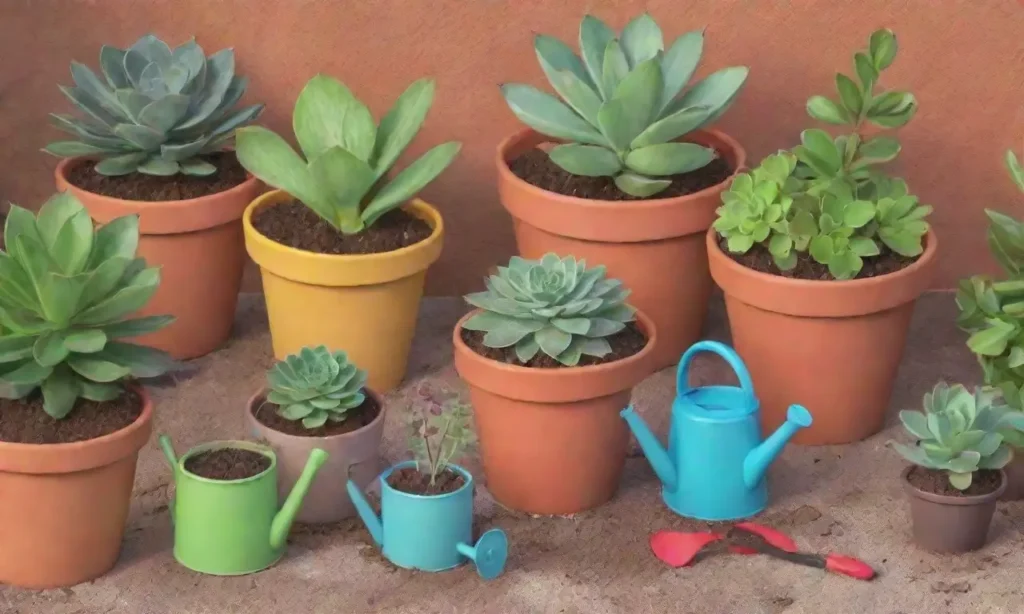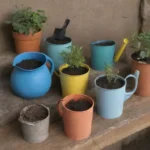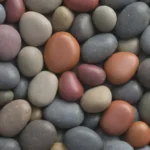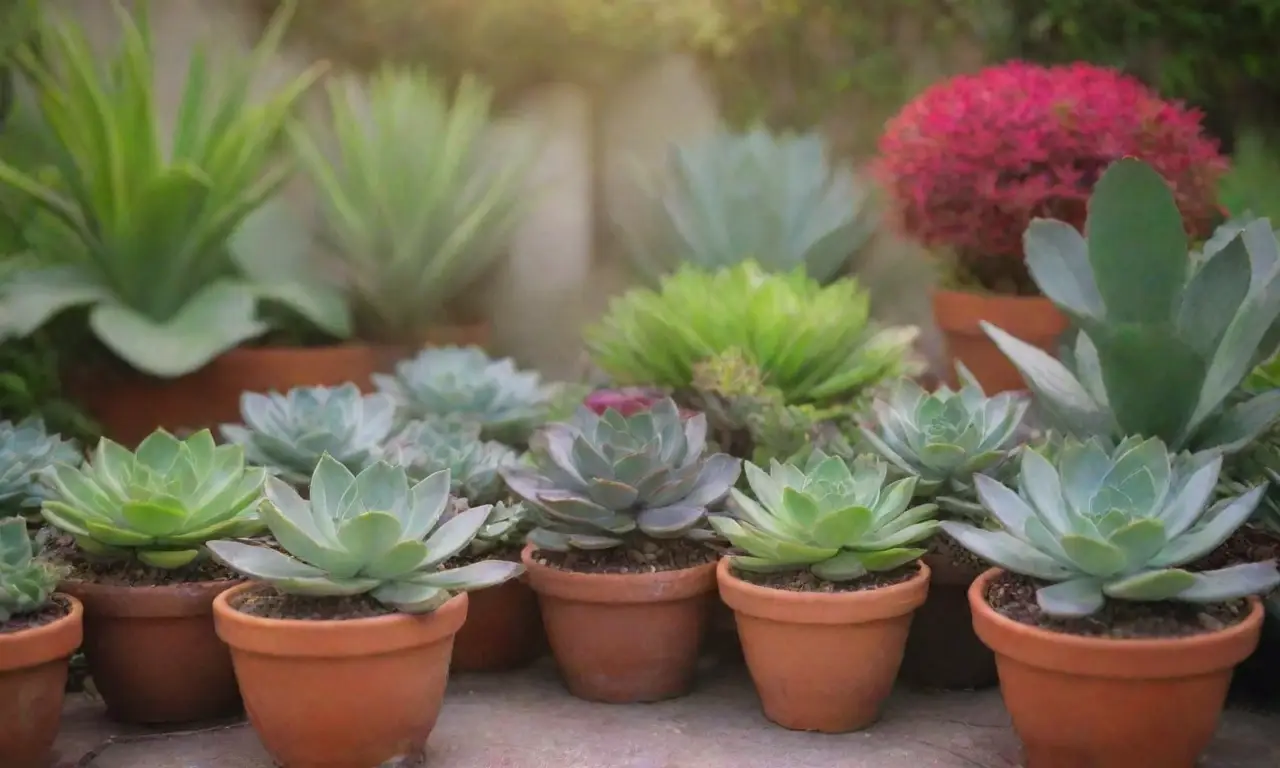Essential Tools for Caring for Your Succulents Outdoors

Introduction
Caring for outdoor succulents can be a delightful endeavor, providing not only an opportunity to beautify your garden but also the chance to connect with nature. These resilient plants, known for their ability to store water, thrive in arid environments and can add striking visual interest to your landscape. However, maintaining their health and vibrancy requires more than just selecting the right plants; it necessitates the use of appropriate tools suited for succulent care. With the right instruments, you can ensure that your outdoor succulents receive optimal conditions for growth, preventing issues such as over-watering or pest infestations.
In this article, we will explore the essential tools needed to care for your outdoor succulents effectively. We will cover everything from basic gardening tools to specialized equipment designed expressly for succulent maintenance. Whether you're a novice gardener or an experienced horticulturist, having the appropriate tools at your disposal will enable you to cultivate a thriving succulent garden that flourishes in outdoor environments.
Basic Gardening Tools
Hand Tools: Essential for Every Gardener
The cornerstone of any gardening endeavor begins with a set of reliable hand tools. These tools are indispensable for general gardening tasks and are particularly essential when it comes to cultivating succulents. Among the most vital hand tools are the trowel, the hand rake, and the pruning shears.
Trowels are versatile tools that allow gardeners to dig holes for planting, transfer soil, and remove weeds efficiently. When selecting a trowel, opt for one with a durable stainless-steel blade and a comfortable grip to avoid hand fatigue during extensive gardening sessions. With a trowel, you can easily manipulate soil around your succulents, ensuring that they are appropriately positioned and supported.
Hand rakes can assist in leveling soil and removing debris that may hinder your succulents' growth. These rakes come in various widths and tooth configurations, so choose one that fits the scope of your gardening tasks. A hand rake allows you to gently scrape the soil surface, aerating and promoting moisture retention for your outdoor succulents.
Pruning shears are another essential tool. Succulents sometimes develop dead leaves, damaged branches, or overgrown stretches that need to be addressed for optimal health. With a sharp pair of shears, you can trim away these problematic areas without causing stress to the plants. Pruning is critical not only for aesthetics but also for directing the plant's energy into new, healthy growth.
Watering Tools: Hydration is Key
One crucial aspect of caring for outdoor succulents is providing them with the appropriate amount of water, particularly during dry spells. Over-watering is a common mistake among succulent owners, making the choice of proper watering tools vital. Consider using a watering can with a long spout or a hose with a spray attachment that allows for precise watering.
 Unique Hanging Accessories for Displaying Succulents Indoors
Unique Hanging Accessories for Displaying Succulents IndoorsWhen using a watering can, ensure it is made from a lightweight material and has a spout that directs water exactly where it is needed. This is especially useful for succulents planted in hard-to-reach locations, avoiding a deluge that can disturb the roots or lead to soil compaction. A watering can with a fine nozzle can provide a gentle shower, reducing the likelihood of over-saturating the soil.
For those with larger gardens or multiple succulent pots, a garden hose with a spray attachment can facilitate more efficient watering. Look for an adjustable nozzle that allows you to control the water flow and pressure. Spray settings can enable you to deliver a gentle mist or a more focused stream, depending on what your plants require at any given time.
Soil Tools: Foundations for Growth
The importance of soil in the growth of outdoor succulents cannot be overstated. Succulents thrive in well-draining soil, which promotes healthy root systems and prevents root rot. Knowing this, a combination of tools will help you prepare and maintain the soil in which your succulents thrive. A soil pH tester, a soil scoop, and a garden fork are among the most valuable tools at your disposal.
A soil pH tester allows you to gauge the acidity level of your soil, helping you create a more suitable environment for your plants. Succulents generally prefer slightly acidic to neutral soil, with a pH range of 6.0 to 7.0. By periodically testing your soil, you can make informed decisions about amendments or additives, ensuring an optimal growing environment.
A soil scoop is imperative for mixing and transferring soil, especially when updating your succulent pots or amending the garden beds. Choose a scoop with a curved design to ensure easy handling and accurate pouring. This tool will prove invaluable as you interact with various soil types and textures, allowing you to nourish your succulents effectively.
Lastly, a garden fork can help you aerate the soil, breaking up compacted areas while mixing in nutrients and amendments. This fork will allow you to loosen soil without disturbing the roots of your succulents, promoting healthy growth and ensuring they can access the moisture and nutrients they need.
Maintenance Tools
Pest Control: Keeping Your Succulents Healthy
Like all plants, succulents are susceptible to a variety of pests that can adversely affect their well-being. To maintain a pest-free succulent garden, consider investing in integrated pest management tools. Common options include insecticidal soap, diatomaceous earth, and even hand-held magnifiers for pest identification.
 Gardening Accessories That Make Succulent Maintenance Easy
Gardening Accessories That Make Succulent Maintenance EasyInsecticidal soap is an effective remedy for tackling soft-bodied pests like aphids or spider mites. When applied as directed, it disrupts the pest's life cycle without causing harm to your plants or the surrounding environment. It's an important addition to your gardening toolkit, allowing you to manage pest issues swiftly and humanely.
Diatomaceous earth is another valuable pest control tool. This natural powder is made from the fossilized remains of tiny aquatic organisms. When sprinkled on your soil or leaves, it can deter crawling insects by breaking down their exoskeletons. This organic solution not only helps control pests but also enhances the overall health of your garden.
Identifying pests can sometimes be tricky, especially when they blend into the succulent's foliage or soil. A hand-held magnifier will assist in closer examinations, allowing you to spot infestations before they become serious. By taking a proactive approach to pest control, you maintain a beautiful, vibrant succulent garden.
Fertilizing Tools: Nourishing Your Succulents
While succulents are low-maintenance plants, they still benefit from periodic fertilization during their active growth seasons. Using fertilizing tools such as a liquid fertilizer applicator and measuring spoons will ensure that you nourish your plants without over-fertilizing them.
A liquid fertilizer applicator makes it easy to dissolve the nutrients in water and apply them evenly around your succulents. Look for an applicator with a calibrated mechanism that allows you to measure precise amounts, helping to avoid the risk of nutrient burn.
Measuring spoons are handy for mixing concentrated fertilizers with water. They help you follow the manufacturer's recommended dosage accurately, promoting healthier growth in your succulents without the expense or waste of excess fertilizer.
By regularly testing and adjusting your approach to plant nutrition, you create an environment that nurtures the long-term health and beauty of your succulents, leading to more vibrant displays in your outdoor space.
 Decorative Rocks: Choosing the Right Ones for Succulent Gardens
Decorative Rocks: Choosing the Right Ones for Succulent GardensConclusion

Caring for outdoor succulents is a rewarding journey that not only enhances your garden's beauty but also engages you in the therapeutic activity of gardening. With the essential tools we've discussed—hand tools, watering instruments, soil tools, pest control measures, and fertilizing equipment—you can provide the best care for your succulents, ensuring their health, growth, and vibrancy.
Investing in the right tools gives you increased control over your gardening practices, allowing you to tackle potential problems before they arise. Moreover, understanding how to utilize these tools effectively promotes a stronger bond between you and your plants and a more fulfilling gardening experience. Each tool serves a specific purpose, ensuring that your succulent garden thrives under your attentive care.
As you continue your journey with outdoor succulents, remember that plants, like people, require thoughtful care and attention. Embrace the experience, keep your tools organized, and don’t hesitate to experiment with various practices, as all gardening is a learning process. By committing to the use of these essential tools, you’ll cultivate not just a garden, but a space of serenity, beauty, and resilience that can be enjoyed for years to come. Happy gardening!
If you want to read more articles similar to Essential Tools for Caring for Your Succulents Outdoors, you can visit the Gardening accessories category.
